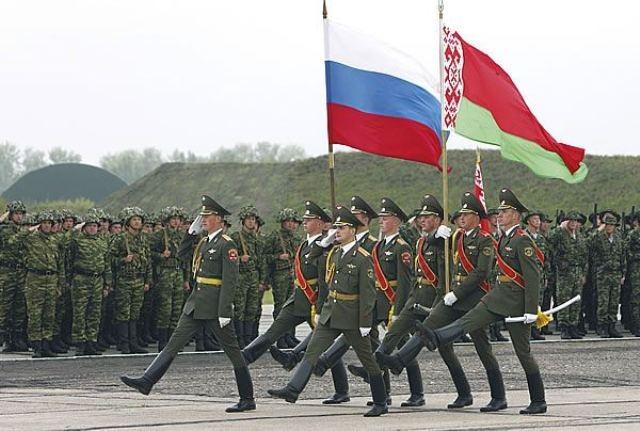Joint meeting of the Defence Ministries of Belarus and Russia passes without significant results
 The situation has not changed
The situation has not changed

The results of the meeting of the joint board of the Ministries of Defence of Belarus and Russia are mostly unremarkable, excepting perhaps the failure to reach agreement on certain issues.
On October 22nd, a routine meeting of the Defence Ministries of Belarus and Russia took place, resulting in predictable announcements, such as the extension of the agreement permitting the Russian federation to operate military facilities on Belarusian territory (specifically, the 43rd communication centre in Vileika and a the “Gantsevichi” radio engineering facility). Russia had previously indicated a desire to extend the agreement for another 25-years, but no time period was specified in the final announcement. It is possible that Minsk insisted on a shorter duration.
A new military doctrine for the so-called “union state” was also announced, replacing the agreement of 2001, however, pending ratification, this remains only a proposal. Russia agreed a new joint military doctrine in 2018, and it is unclear whether this proposal has been reanimated or a new version developed.
The agreed activities within the framework of bilateral military cooperation conform to the same parameters as in the past, and include plans for the “Union Shield” exercises in 2023, following a 4 year pattern established in 2011.
Although Belarusian and Russian propaganda claims that the parties are strengthening military cooperation in response to Western pressure, it must be understood that Minsk and Moscow are also addressing problems unrelated to confrontation with the West. For the Kremlin, there is a strong imperative to maintain influence in the post-Soviet space. For Minsk, military cooperation is a traditional (but increasingly weak) lever for influencing interaction with Russia in political and economic spheres, via “security arbitrage”.
It is unlikely to be coincidental that the Belarusian Constitutional Commission began work on finalizing reform proposals in the immediate aftermath of these military agreements.
Subscribe to our newsletter




Situation in Belarus
Constitutional referendum: main consequences


 Video
Video
How to count the political prisoners: are the new criteria needed?


 Video
Video
Paternalism In Decline, Belarusian Euroscepticism, And The Influence Of Russia


 Video
Video












